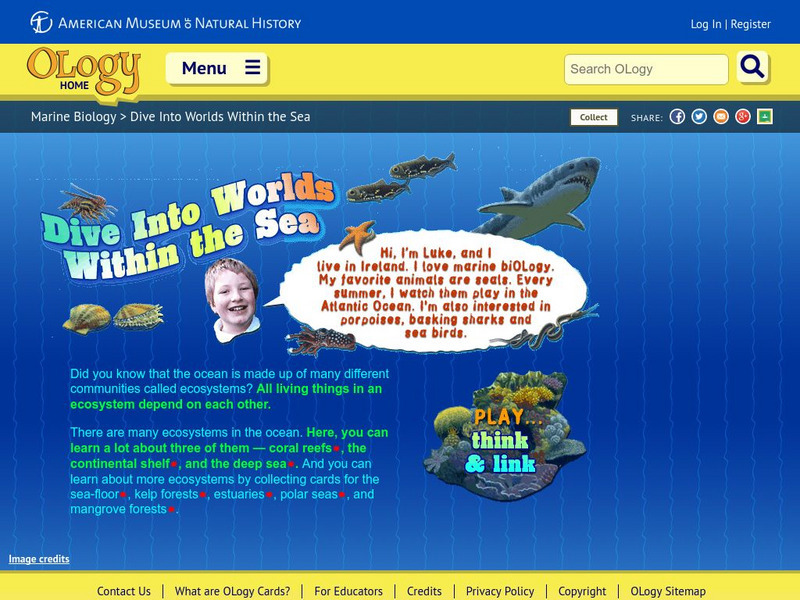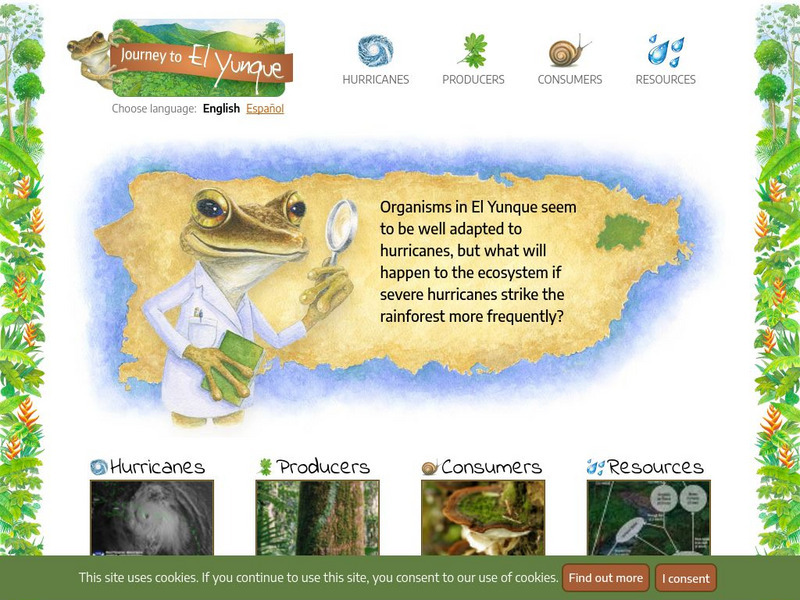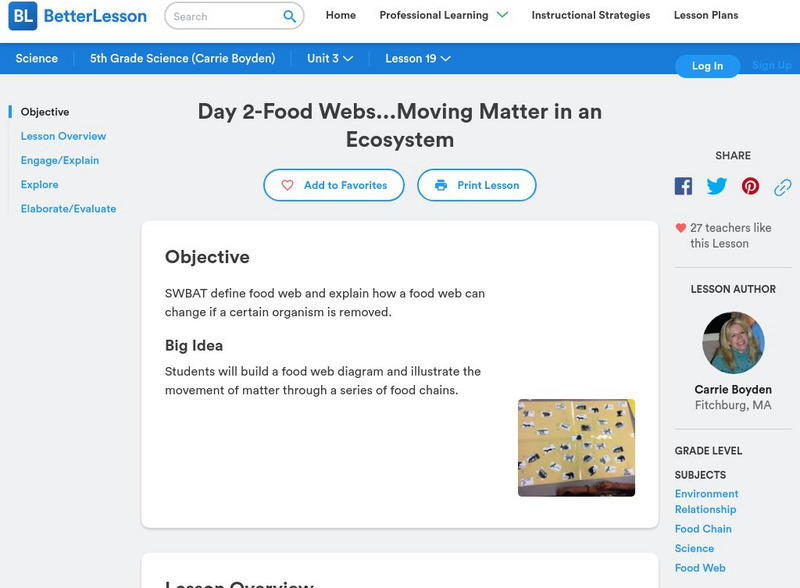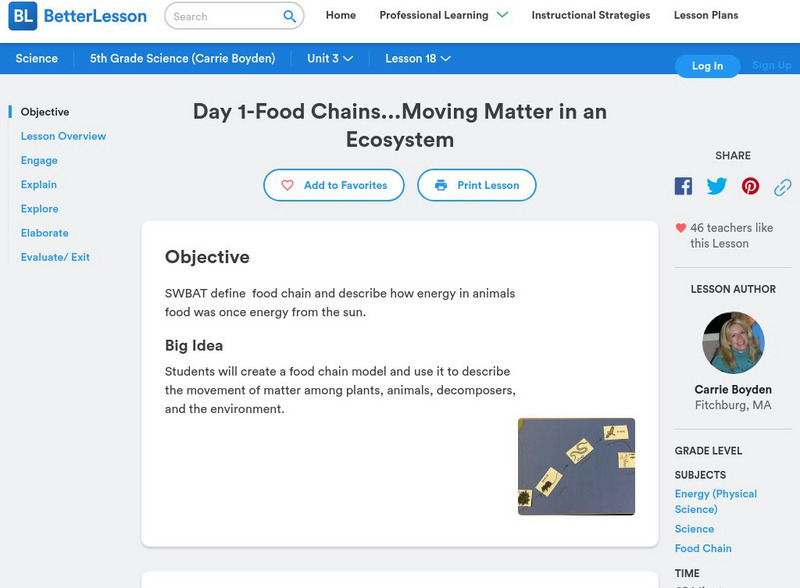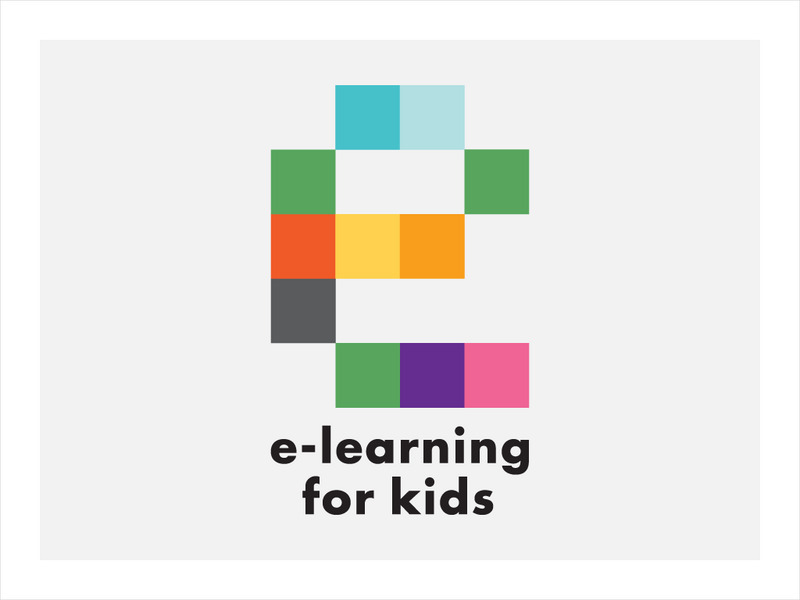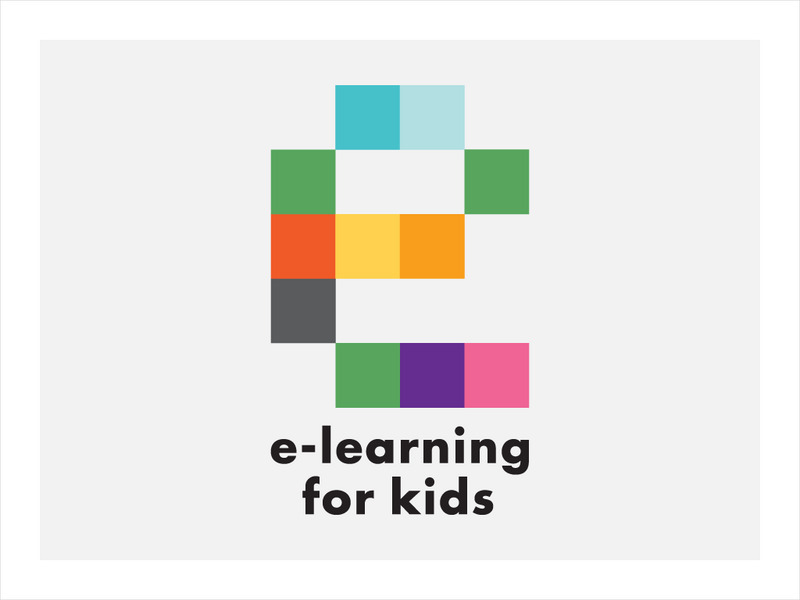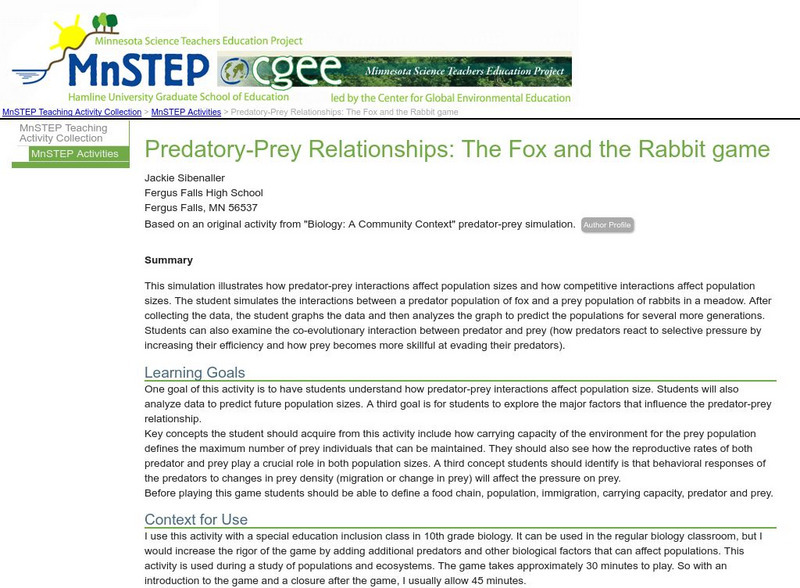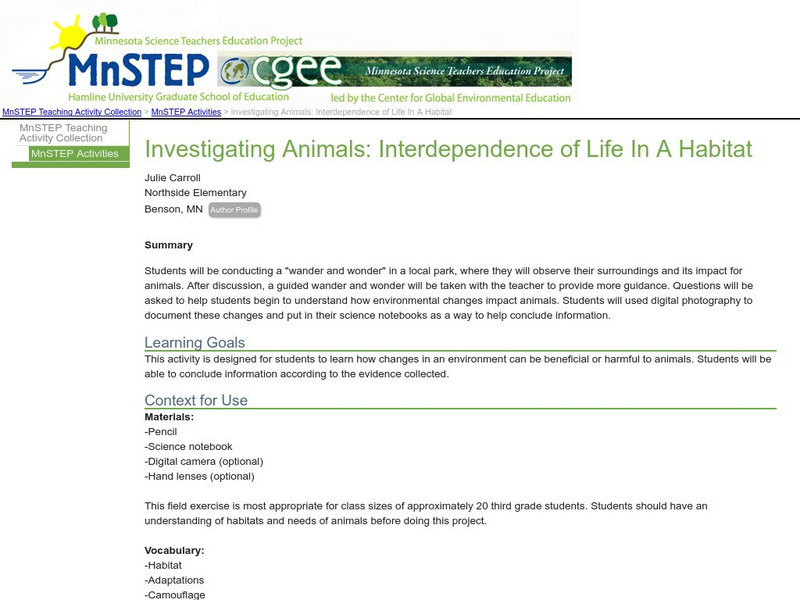Texas Education Agency
Texas Gateway: Organisms and Environments: Organisms Interactions
Learn about food webs, food chains, and organisms interactions in this interactive tutorial.
American Museum of Natural History
American Museum of Natural History: Dive Into Worlds Within the Sea
Think and Link to investigate three different ecosystem either the deep sea, coral reef or continental shelf. By connecting the dots students make a food chain to see how organisms in each habitat depend on each other.
NOAA
Noaa: Estuaries 101 Curriculum: Estuary Food Pyramid
Students learn about the feeding relationships in an estuary ecosystem with this interactive energy pyramid activity. A second activity involves research and a video clip to elaborate the learning.
Annenberg Foundation
Annenberg Learner: Science in Focus: Energy: Energy in Food
A video workshop examining how the Sun provides energy for all living things beginning with the process of photosynthesis. Presents current scientific thinking about energy transfer through the food chain as well as ways to deal with...
Smithsonian Institution
National Museum of Natural History: Ocean Planet
Detailed website that was a companion to a 1995 traveling exhibit of the Smithsonian. Links to lesson plans and other educational materials are at the bottom of the page. Enter the exhibition to explore the world of the ocean.
TeachEngineering
Teach Engineering: Got Energy? Spinning a Food Web
Students learn about energy flow in food webs, including the roles of the sun, producers, consumers and decomposers in the energy cycle. They model a food web and create diagrams of food webs using their own drawings and/or images from...
Massachusetts Institute of Technology
Mit: Open Course Ware: Courses: Civil Environmental: Ecology I: The Earth System
College-level online course highlighting the fundamentals of ecology. Course topics include coevolution of the biosphere, geosphere, atmosphere, and hydrosphere; photosynthesis and respiration; and the carbon, nitrogen, and water cycles....
Other
The Learning Partnership: Journey to El Yunque
In this set of learning modules, students examine the impact of hurricane weather on the El Yunque rainforest in Puerto Rico. They learn about hurricanes, producers, consumers, and the food chain, and how disruptions in organisms'...
Better Lesson
Better Lesson: Food Webs Moving Matter in an Ecosystem(day 2)
Students will build a food web diagram and illustrate the movement of matter through a series of food chains. Resources include detailed plans, examples of student work, videos of the lesson plan in action, and sample food webs.
Better Lesson
Better Lesson: Food Chains Moving Matter in an Ecosystem (Day 1)
Students will create a food chain model and use it to describe the movement of matter among plants, animals, decomposers, and the environment. Resources include a detailed lesson plan, student handouts, pictures of a completed chain,...
Smithsonian Institution
Smithsonian Environmental Research Center: Forces of Change: Weaving the Web
The students will become the food web in this fun interactive classroom activity. Detailed instructions, background information, guiding questions, and activity worksheets are provided.
Other
Kidwings: Virtual Owl Pellet Dissection
A complete lesson on owl pellets. Students can read information, watch a tutorial, and use their computer mouse to complete a dissection simulation right there on the screen.
Concord Consortium
Concord Consortium: Stem Resources: Predators and Prey
Did you ever want to be a hawk? In this virtual ecosystem, students will take on the role of a hawk and try to catch rabbits on a snowy field. Students will see which rabbits have adaptations that allow them to blend into the environment...
OpenSciEd
Open Sci Ed: 7.4 Matter Cycling & Photosynthesis
This unit on matter cycling and photosynthesis has students investigating the idea that all food comes from plants.
National Center for Ecological Analysis and Synthesis, University of California Santa Barbara
Kids Do Ecology: Learn About Ecology
This resource provides information about ecology.
E-learning for Kids
E Learning for Kids: Science: Bermuda Triangle: How Is Energy Transferred Between Organisms?
Bermuda is a mysterious place. Meet Scotty and his family and join them on their holiday to learn about energy transfer in ecosystems.
E-learning for Kids
E Learning for Kids: Science: South Africa: How Do Organisms Get Their Energy?
Join Ellen on her trip to the Kaap De Goede Hoop in South Africa, and learn more about plants, animals, and energy.
E-learning for Kids
E Learning for Kids: Science: Titanic Shipwreck: What Are Food Webs?
Jorge is a cook in an underwater restaurant. He knows a lot about food webs. Dive in and learn about it with him.
Science Education Resource Center at Carleton College
Serc: Predatory Prey Relationships: The Fox and the Rabbit Game
This activity helps students understand how predator-prey interactions affect population sizes and how competitive interactions affect population sizes. They will also explore the major factors that influence the predator-prey relationship.
Science Education Resource Center at Carleton College
Serc: Investigating Animals: Interdependence of Life in a Habitat
In this activity, students will learn how changes in nature can be beneficial or harmful to animals. At the end, students will be able to conclude information according to the evidence collected.
Sheppard Software
Sheppard Software: Food Chain
Have a look at a simple food chain and others that are more complex. Then construct a series of food chains by playing a drag-and-drop game.
FT Exploring
Ft Exploring: The Flow of Energy Through Plants and Animals
Explore the different ecological roles of organisms in the ecosystem, and find out how the energy flows through them.
PBS
Pbs Teachers: Predator Protector Game Lesson
Describe the habitat, food web and ecosystem of shark species. Identify threats to sharks and explore how top predators help to maintain the balance of nature within ecosystems. This lesson plan also contains an interactive game.
University of Michigan
University of Michigan: The Concept of the Ecosystem
Lesson looks at the definition of an ecosystem, biogeochemical cycles, and factors responsible for the differences between ecosystems.



